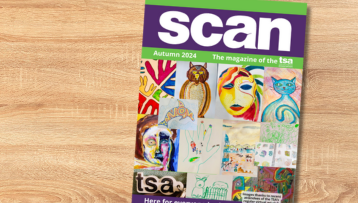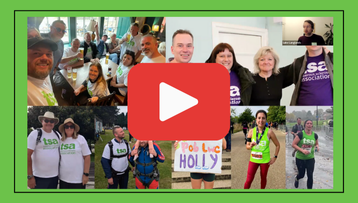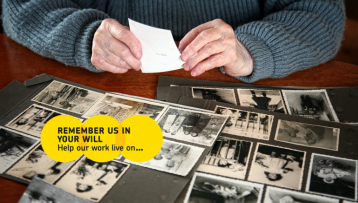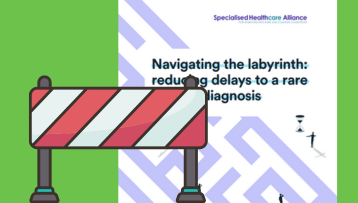Christmas can bring so much joy and happiness to people of all ages and backgrounds. However, for some individuals and families with TSC it can also be a time of anxiety and change. Preparing in advance can help ensure that everyone can enjoy the celebrations while feeling supported and understood. Here are some tips to help you and your loved ones navigate this festive period with confidence:
Preparing for changes
- Talk about what to expect: Discuss what the festive period will involve, including changes to routines and the environment. Visual aids such as photos, videos, or social stories can be particularly helpful
- Introduce decorations gradually: Instead of transforming your home into a Winter Wonderland all at once, add decorations slowly so everyone has time to adjust. Using photos of previous years’ decorations can also help set expectations – you could also see if people more anxious about the changes want to get involved!
Managing the day-to-day
- Plan ahead: Christmas Day is likely to be a busy and chaotic day, even with the best planning. Be sure to try and organise some quieter days for rest and recuperation during the holidays. Perhaps you can have a ‘quite corner’ or room, where people can retreat to if things are getting too much?
- Stick to routines: Maintain regular routines as much as possible to create a sense of stability during this busy period. You could have a ‘festive schedule’ that’s different to the norm, but is clear about timings and expectations
- Medication check: Ensure you have enough medication for the entire festive period, such as ordering in advance if needed, and you know when and if TSC clinics or GP clinics will be open or closed. This’ll reduce lots of anxiety about ‘What if’ scenarios
- Remember everyone’s limits. Absolutely everyone has a ‘social bucket’ that might get filled slowly or very quickly. The key is to plan accordingly for such moments, and being clear with everyone that there’s no judgement in wanting to end things for a little while
Keep things simple, but this doesn’t mean boring
- Simplify gifting: If surprises are overwhelming, consider asking or giving a list of specific potential presents. Would loved ones prefer to get things not wrapped, or told beforehand what they’re going to get? Or, perhaps people would just rather not receive anything?
- Create a safe space: Designate some areas in your home where individuals can retreat if they need a break from the festivities. These might just be calming, but you might also want to consider whether to make them ‘Christmas free’ too
- Be mindful of lights and sounds: Go for decorations and lights that won’t trigger seizures or sensory sensitivities. If using Christmas crackers, let those who may be affected choose when to pull them or avoid them altogether – you could even carefully open up the crackers beforehand and take out the banger
Food and drink
- Stick to familiar foods: There’s no need to feel pressured to have a traditional Christmas dinner — safe foods are just as festive! Maybe they’ll even become your family’s new ‘traditional’ meal?
- Consider whether to have snacks or not: Some people might find the ongoing choice for food and drinks overwhelming, which might be something to keep in mind
- Remember dietary requirements: If anyone is on a special diet, such as the ketogenic diet for seizure control, it’s best to not disrupt this too much
By taking these steps, you can help ensure that the festive period is enjoyable and inclusive for everyone. If you have any concerns about the festive season, the TSA Support Line is here for you.



















































































































